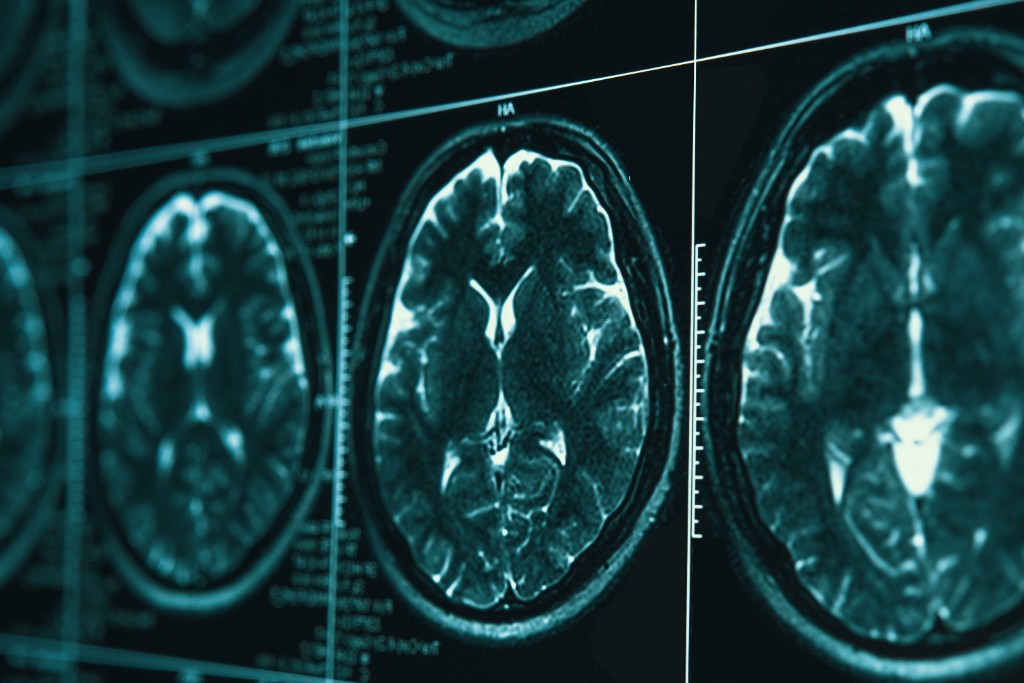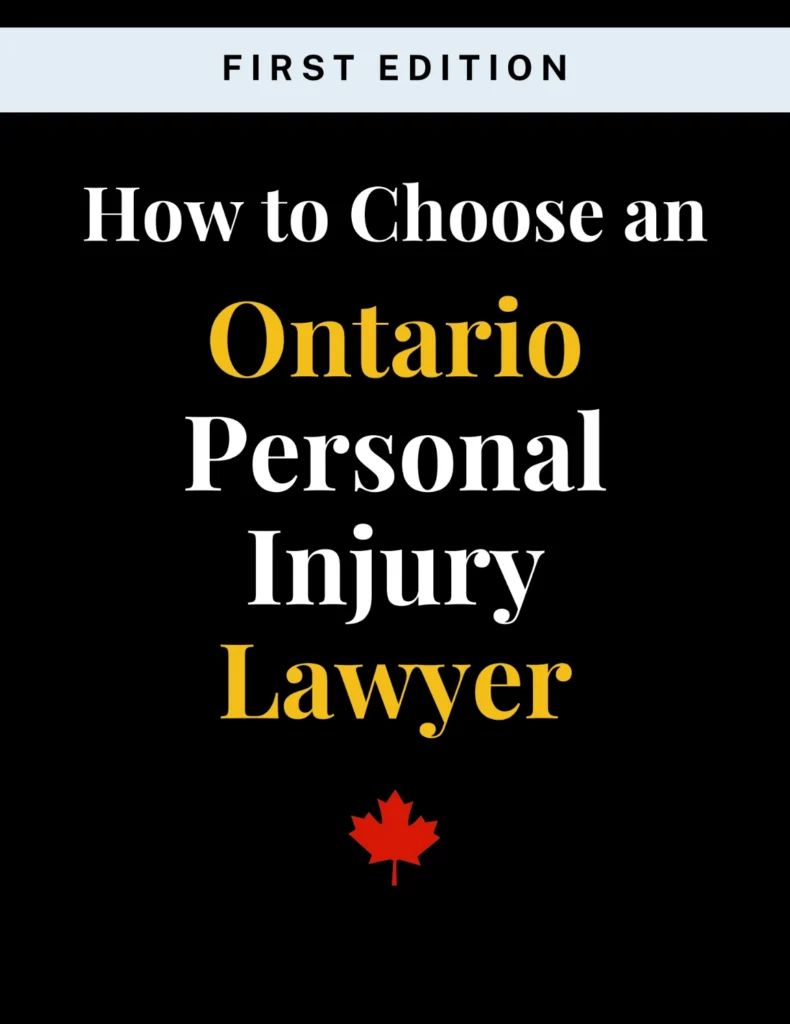Ajax Brain Injury Lawyer
Find out if you have a case today.
Contact our Ajax traumatic brain injury lawyers for a free consultation if you have legal questions regarding your traumatic brain injury claim.
Table of Contents
Injuries to the brain can be devastating. Our brains are both extraordinary and vital to our functioning. Protected in a shield of solid bone skull, it is easy to think that in an accident, our brains are fully protected. However, the human brain is still delicate, and we are only beginning to understand how the brain is injured in accidents.
Traumatic Brain Injuries
Any type of injury to the human brain incurred in an accident can be a traumatic brain injury (TBI). A TBI can be anything from a minor concussion that comes and goes over a short period of time, to a permanent and debilitating injury that affects the victim for the rest of his or her life.
Our brain is protected by a helmet of the human skull, which is both a benefit and a disadvantage. It is a benefit in that the solid bone of the head prevents our brains from sustaining injury from any head trauma, such as a blunt force blow to the head.
However, the skull’s close proximity to the brain also creates problems. In any kind of accident which rocks the head, whether in a car accident or a fall, or even by abuse or battery, the brain can be slammed against the interior of the skull, causing a concussion, or worse.
LET US PUT OUR EXPERTISE TO WORK FOR YOU
Tell Us What Happened
Since 1959, we’ve helped thousands of Canadians get the compensation they deserve with their traumatic brain injury claims. One of Canada’s oldest personal injury law firms, personal injury law is exclusively what we do. Book a free consultation today with our top-rated personal injury lawyers.
Our team is available 24/7 to speak with you.

Symptoms Of Tbi
Victims of TBI may need constant monitoring. They may be forgetful to the point of causing harm to themselves or others, forgetting children in cars, or forgetting to lock doors or turn off appliances. Some TBI victims have senses such as smell or eyesight affected, which can lead to an inability to recognize and react to dangerous situations.
The symptoms of TBI can be temporary, can last for months, or can last forever. There is no correlation between the impact and the permanency of the TBI symptoms. In other words, someone who suffers a “minor” concussion may suffer lifelong headaches, or forgetfulness, whereas someone who blacks out at the scene of an accident and suffers a major concussion may have serious immediate symptoms that eventually subside over time.
Diagnosing Brain Injuries
Brain injuries can be difficult to immediately diagnose. The severity of symptoms immediately after an accident may not correlate to the long term disability that a TBI causes.
For example, someone may suffer a serious concussion and blackout, requiring emergency medical attention. That person may later recover fully and have no symptoms at all.
Conversely, someone may feel fine after an accident, with perhaps a minor headache, or the feeling that they have had their “bell rung.” They may be so confident that they are not seriously injured that they decline emergency medical help after an accident.
However, brain bleeds can be slow and undetectable at first. Over the course of just a few hours, someone’s condition can deteriorate as blood pools between the skull and the brain. The pooling blood has nowhere to go, and eventually exerts pressure on the brain, causing unexpected death.
This is why anybody who suspects they have sustained head trauma in an accident, no matter how they feel, should be constantly monitored. Most hospitals will keep those who have had head trauma for observation, but for those who are sent home or who may decline medical attention (a bad idea), friends or family should keep constant watch over victims for signs of deterioration such as headache worsening, blurry vision, or confusion.
Long-Term Effects And Disability
If time goes by and a victim of TBI does not appear to have a brain bleed, they are not out of the woods. Many TBI symptoms are slow and subtle to manifest. In some cases, it may be difficult to even identify symptoms as being related to TBI.
For example, someone with TBI may exhibit lethargy, appetite changes, lack of motivation, irritability, depression, anger, or it may just seem like their personality is “off.” These can all be symptoms of other injuries—for example, someone may be depressed or angry over an injury to another part of the body. However, these are not reactions or symptoms of injuries to other parts of the body, but symptoms of injury caused to the brain itself.
Denial Of Injuries
Making TBI even more difficult is that unlike injuries to other parts of the body, which victims are often willing to admit, victims often want to deny that there is anything wrong with them when displaying symptoms of TBI.
They may actively deny they are overly emotional, tired, confused, or forgetful—all signs of TBI. They may deny having problems focusing, reading, or concentrating. It may take the urging of friends and family to get a victim to seek professional medical help from a psychiatrist or neurologist.
Getting Medical Help
Receiving medical treatment from a doctor can help you document your progress or improvement (or lack thereof) as time goes on. After a certain period of time, your doctor may determine that your symptoms are permanent.
Your doctor’s records are also vital because unlike broken bones or other types of injuries, there are no scans that show TBI. Scans and tests can show bleeds or other physical injuries to the brain, but they will not show that someone is overly angry, or has lost a sense of smell, or has lost short term memory. The kinds of injuries that cause these symptoms have no scan or test, making a doctor’s tracking of a patient’s improvement or deterioration the only evidence to show an insurance company or a court.
Preszler Law Is Here For You
We also now know that in some cases, TBI can increase the long term risk of brain disease, such as dementia or Alzheimer’s. Thus, people with TBI may need to present damages that allow for the medical expenses related to long term care if and when these opportunistic conditions develop later in life, such as the costs of long term or in-home care, medicine, or assistive devices.
The brain injury lawyers at Preszler Injury Lawyers can help you investigate your case and prove that another driver negligently caused your accident. Call us today to discuss your injuries and your accident.
Do you live in Ajax? Here’s how we can help:
Proudly Canadian
Award Winning Personal Injury Law Firm
We are proud to be one of Canada’s oldest and long-standing personal injury law firms. Since 1959, we have been providing exceptional legal services and have established ourselves as leading personal injury lawyers in the Canadian legal community. It’s not just the awards that recognize our achievements, but also the wins we’ve achieved for thousands of Canadians with their traumatic brain injury claims.
More traumatic brain injury Topics
Here’s more information on traumatic brain injury related topics that we think you might find helpful.

long-term disability
|
October 24, 2022
Neurofatigue After a Concussion
There is a common perception that concussions are strictly brain injuries. However, while concussions are primarily traumatic brain injuries (TBIs), they also affect multiple physiologic…

catastrophic impairment injury
|
March 5, 2021
The Human Cost of Traumatic Brain Injuries
Acquired brain injuries sustained through traumatic events, such as motor vehicle collisions or slip and fall accidents can have profound, devastating effects on accident victims,…

traumatic brain injury
|
July 2, 2018
Ontario Concussion Safety
In March 2018, the Legislative Assembly of Ontario enacted Rowan’s Law (Concussion Safety), a new law aimed at protecting amateur athletes from the dangers of…
DIAGNOSED WITH A TBI AFTER AN ACCIDENT IN AJAX?
Speak to Our Lawyers for FREE Now
We help brain injury survivors
Find out how we can secure the resources and compensation to support your recovery.




